Souhaib Ghanmi's innovative creation, Elos, initially designed as part of his diploma project at ECAL, was recently chosen to be a part of the Global Grad Show, an initiative heralded by the Art Dubai Group. The project comprises a special range of switches and sockets made out of recycled animal bones. Elos holds special relevance in this day and age when all kinds of pollution have become a concerning factor for the environment as well as for all living beings. At the same time, it serves as a solution-based innovative design that proves that different materials have the capacity to take on the roles that are not typical to them.
Launched in 2015, Global Grad Show is a programme that offers graduates from across the world a chance to showcase their research and ideas. The programme specifically focuses on projects that attempt to solve major social and environmental problems. The initiative is the brainchild of the Art Dubai Group, a commercial partnership that owns and operates Dubai's most prominent cultural events. The Global Grad Show also heralds other initiatives like the entrepreneurship programme and the MENA Grad Show and commands a powerful presence at the Dubai Design Week alongside other events and fairs like Downtown Design and Abwab.
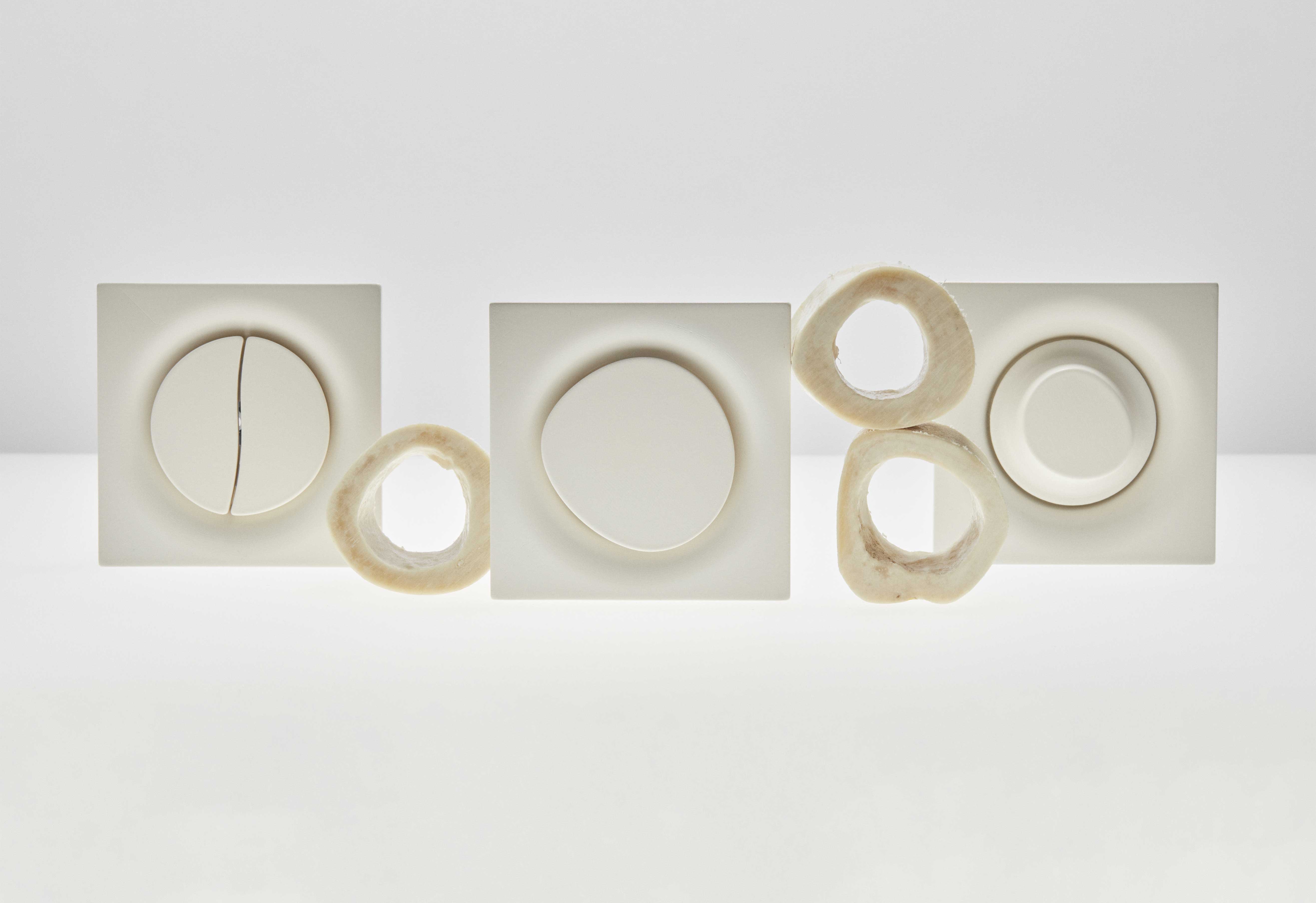
Ghanmi was driven to design Elos in order to create an alternative material for the plastic used in the switches and sockets of indoor spaces. It is common knowledge that plastic is one of the major contributors towards environmental pollution, and one of the most plausible solutions to reduce the same is the development of alternate materials that are biodegradable, long-lasting or are created out of recycled materials.
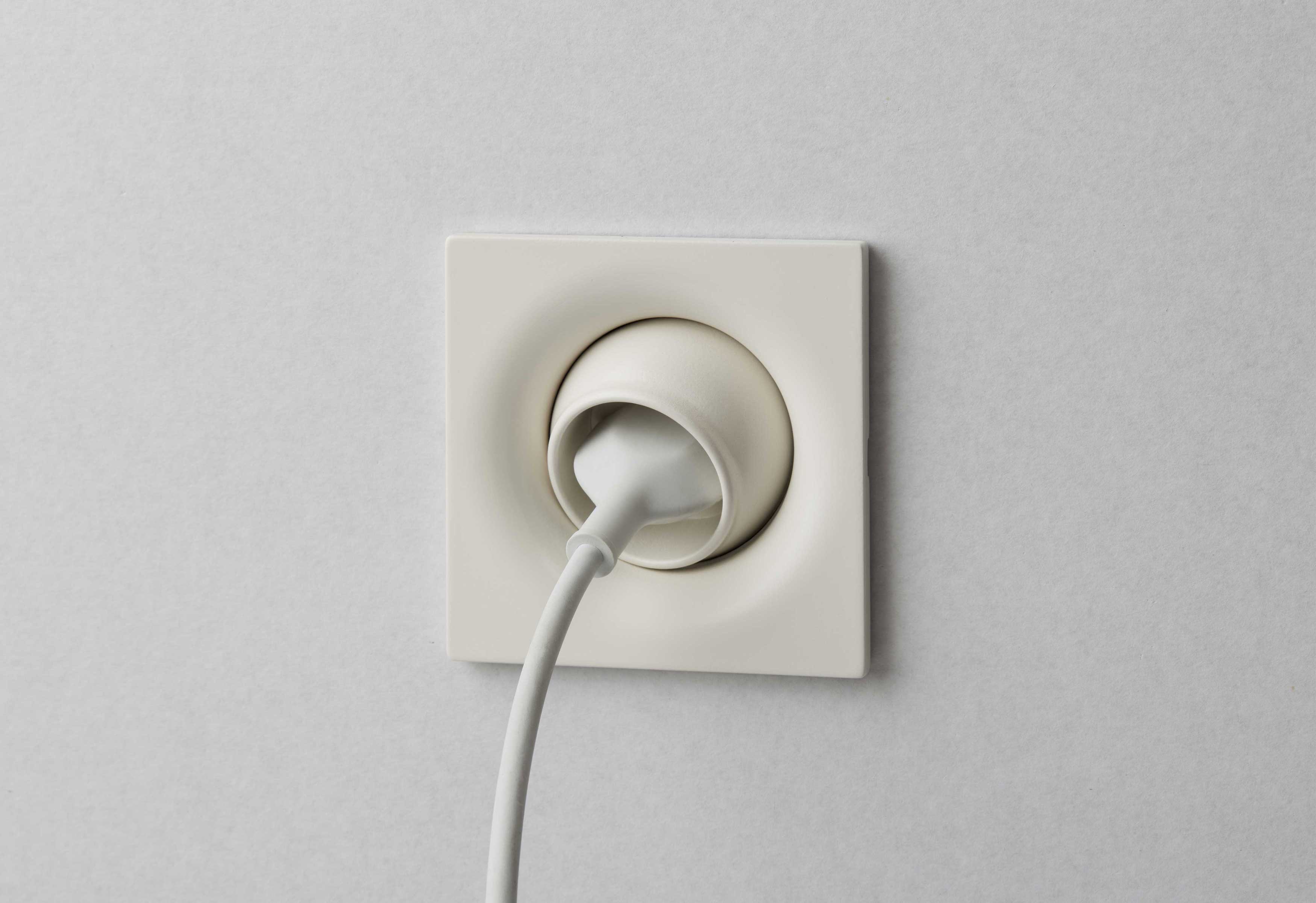
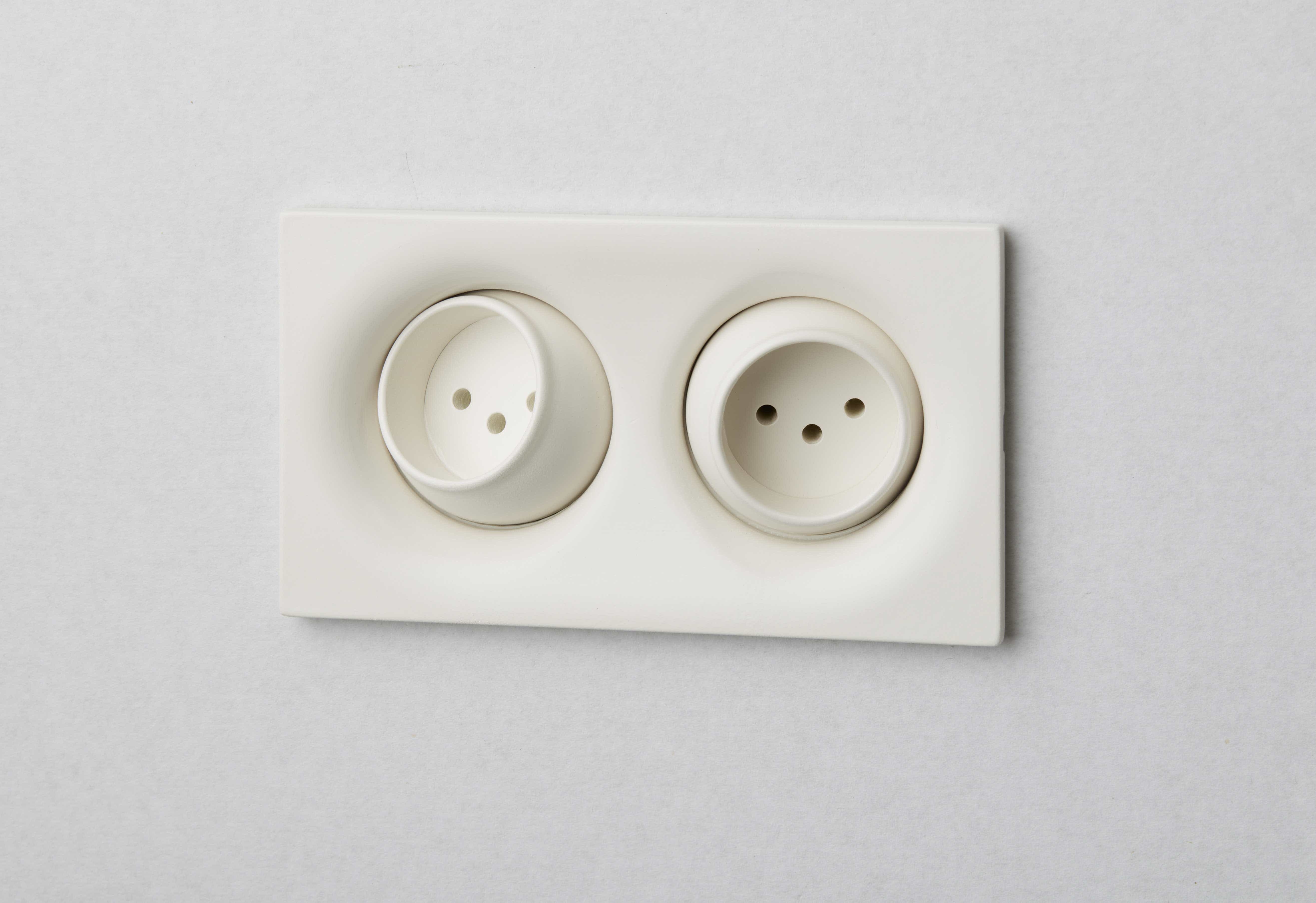
Ghanmi decided to use recycled bone as the elemental material for his project when he witnessed the large amount of waste produced after the slaughter of cattle at his paternal home, where cattle rearing was a customary practice. He grew curious about the material of bone after he saw his uncle saving the bones of slaughtered animals to sculpt out knife handles. His research regarding the same made him realise that most of these animal bones are discarded as waste. While a major portion of the bone waste is burned and destroyed, some portion of the waste is transformed into by-products such as animal feed or Chinese porcelain.
The realisation that bone has no commercial value today, even though it has been used to sculpt out several domestic objects throughout history, led Ghanmi to explore it as a potential material that can not only reclaim its position as an alternative to plastic, but also help in solving several ecological problems born out of the usage of plastic. Another problem that Ghanmi attempts to solve through this project is the reduction of pollution created by the disintegration of bone. By using bone to create everyday objects, the cumulative bone waste that will end up in landfills will considerably lessen.
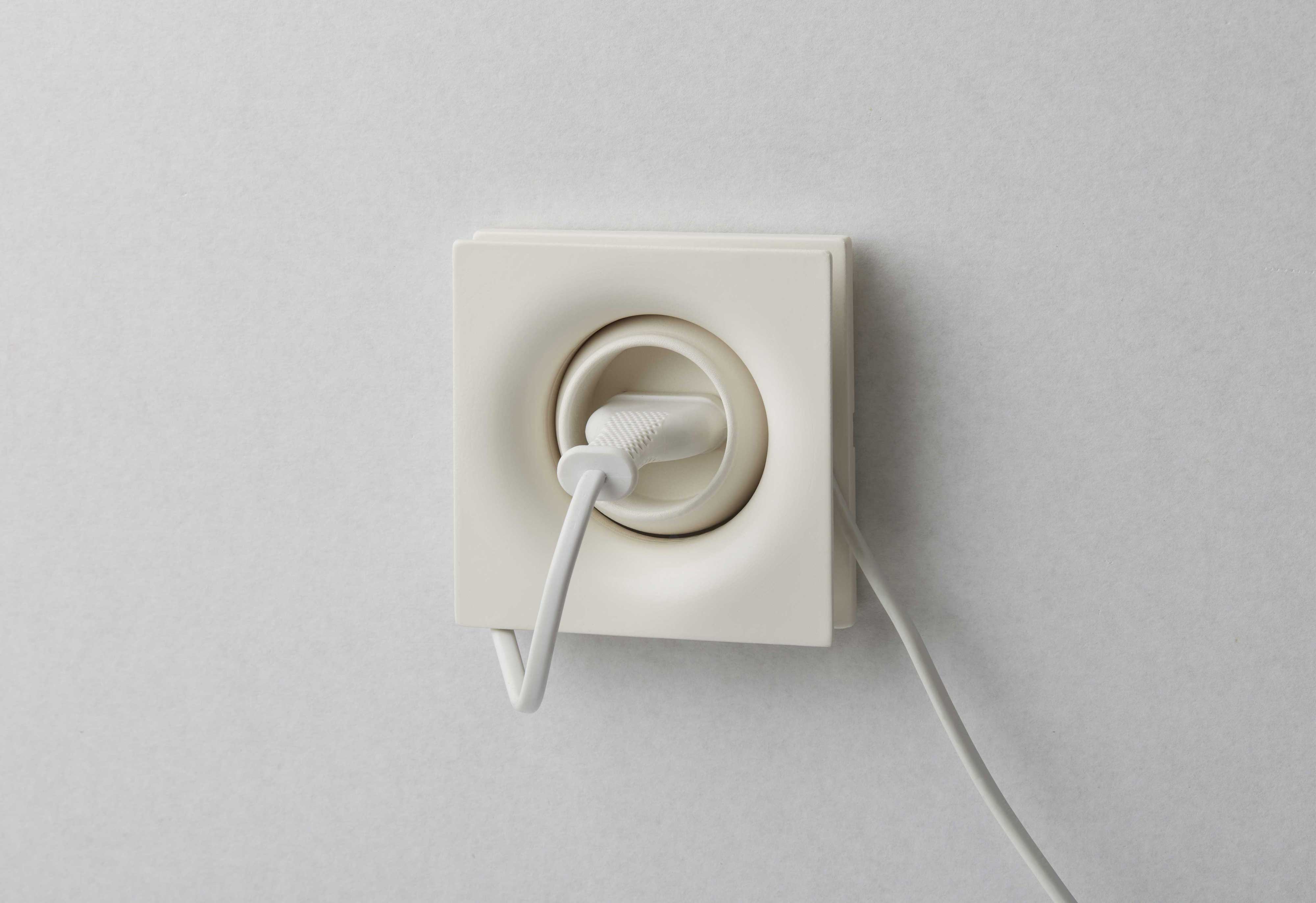
Elos serves to exploit the many benefits that bone as a material offers. The final sockets and switches created out of bone waste offer electrical and thermal insulation and are biodegradable. The sockets are shaped like the head of a femur, with a crevice to hold the cable or accommodate a phone while charging, while the shape of the switches were inspired by the shaft bone.
Souhaib Ghanmi is an industrial designer who traces his origins from Switzerland and Tunisia. He graduated from École cantonale d'art de Lausanne or ECOL in Switzerland and currently splits his time between Vevey in Switzerland and Copenhagen in Denmark. The Swiss-Tunisian designer's work is driven by the desire to find simple solutions for everyday problems. In this respect, he tries to find materials and objects that can be recycled into new products, thus minimising the waste load that ultimately ends up in landfills.
Read our coverage of Dubai Design Week 2021 on STIRworld here.






 Sign in with email
Sign in with email


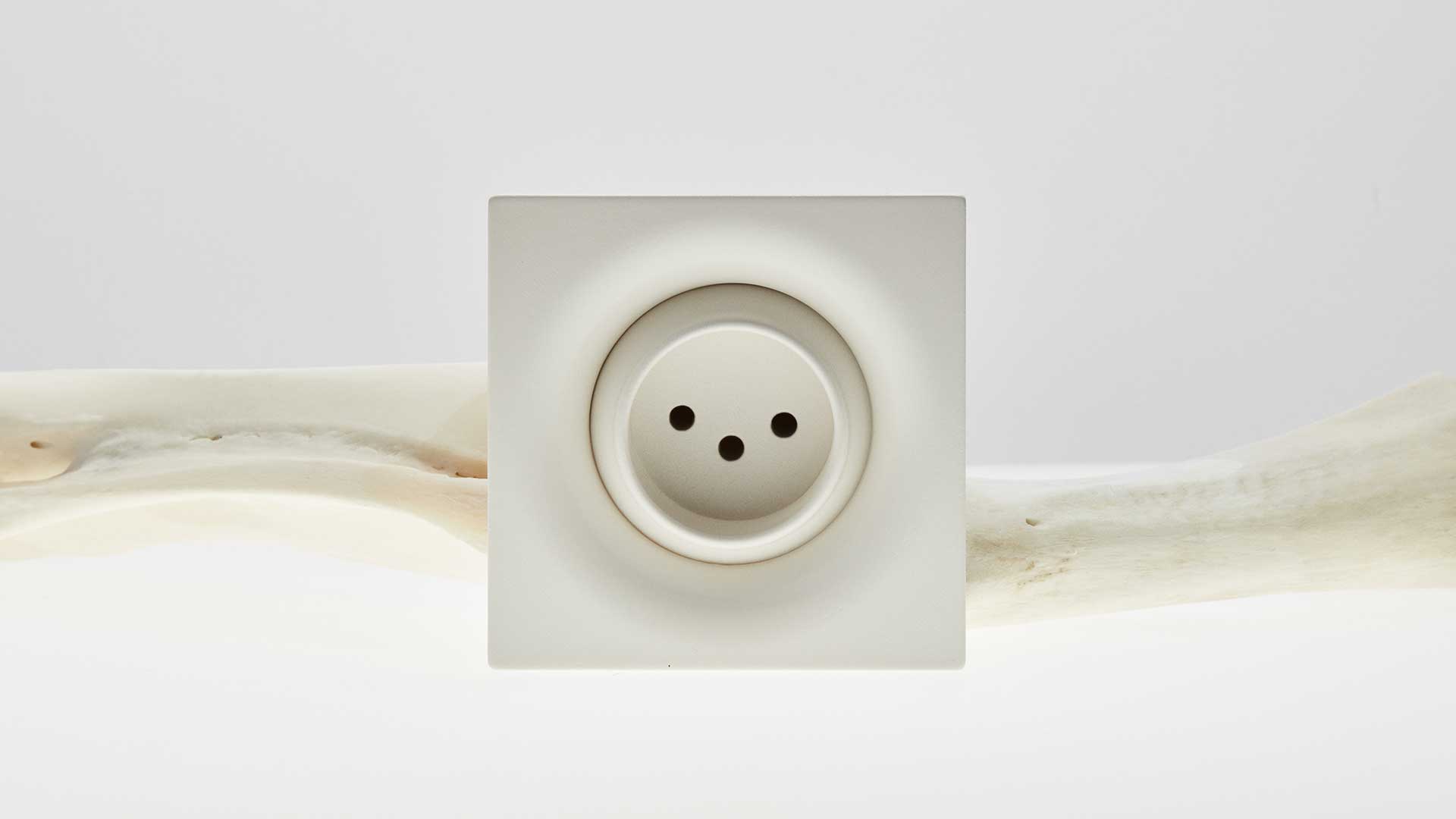
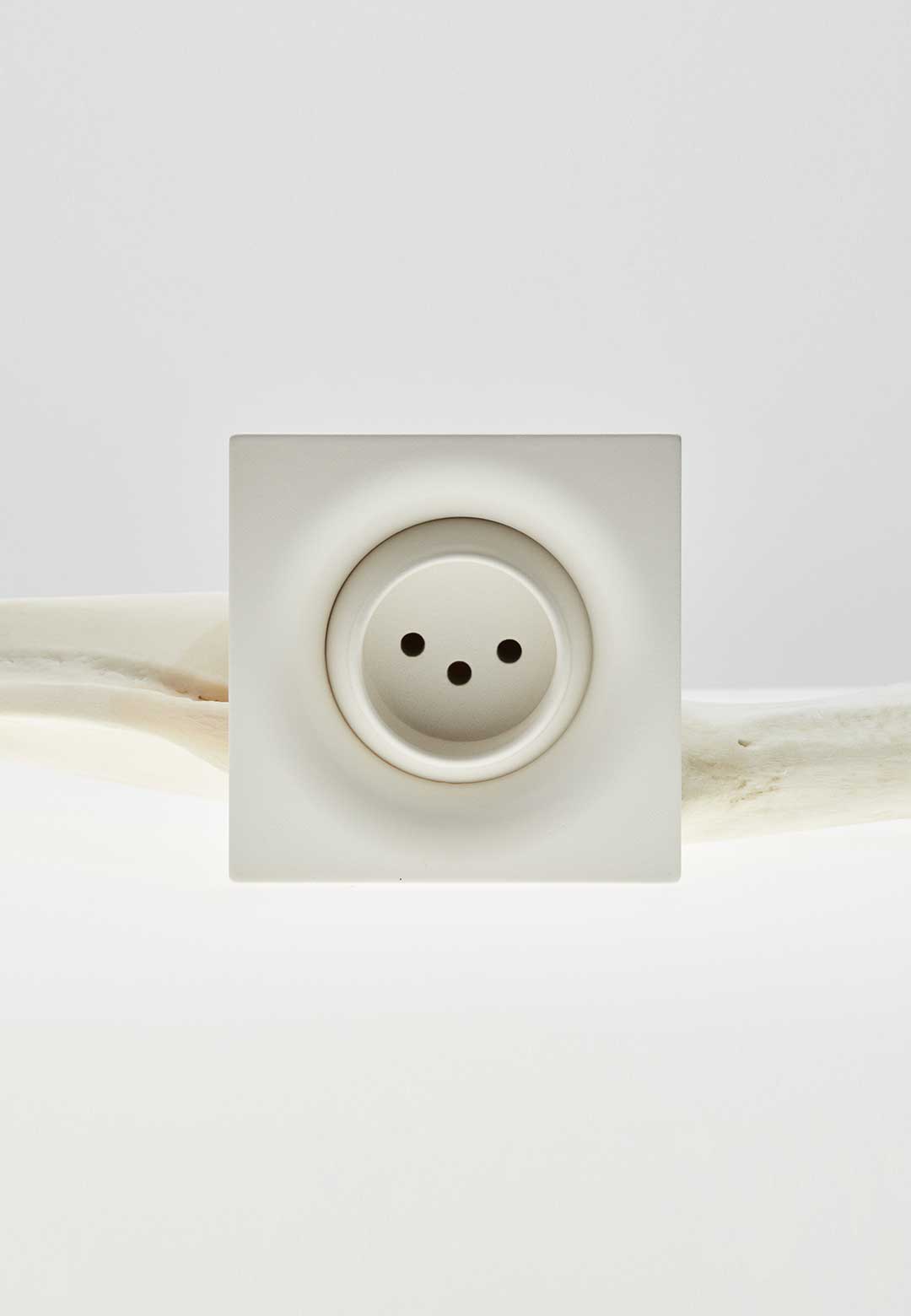
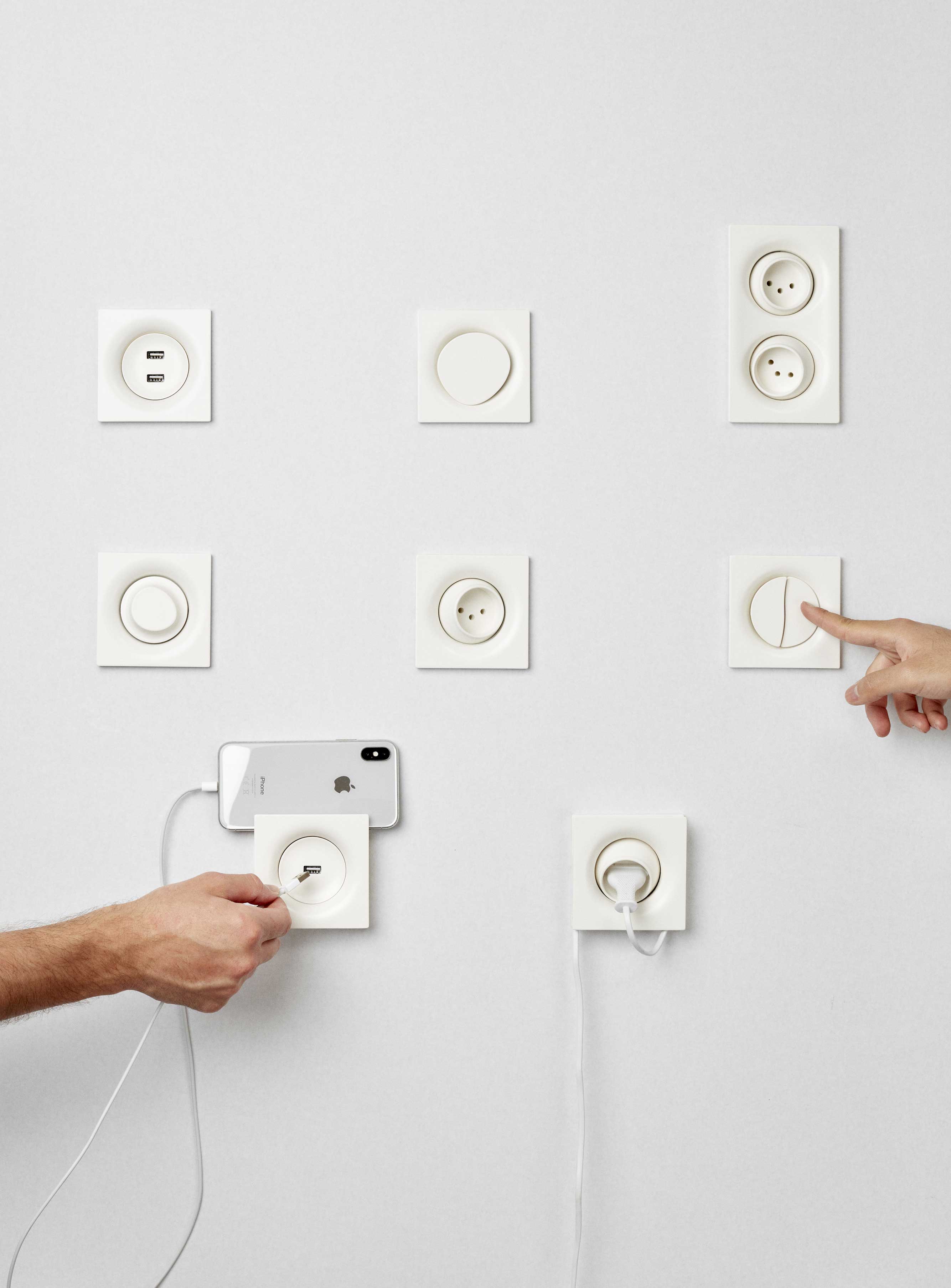
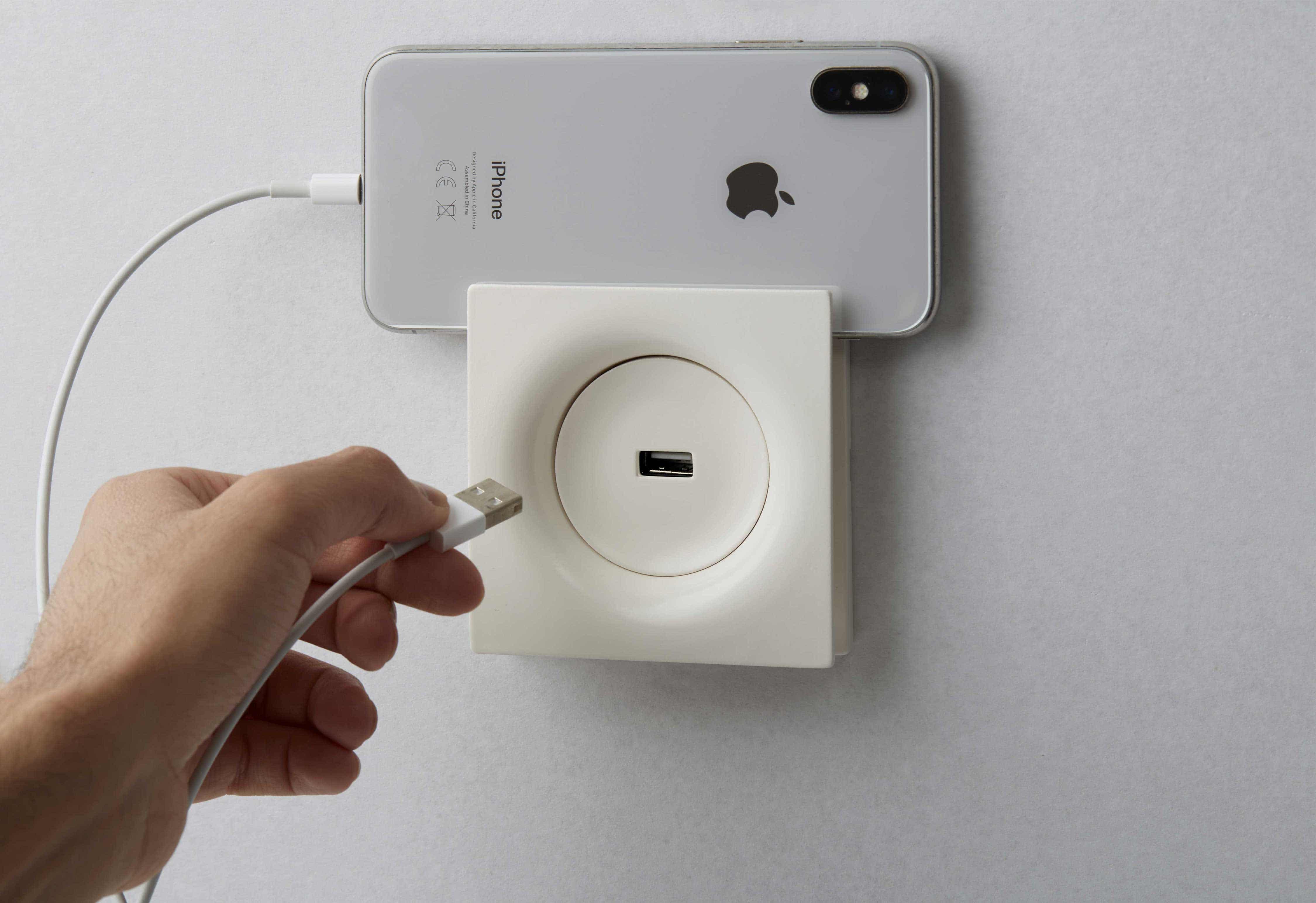






What do you think?